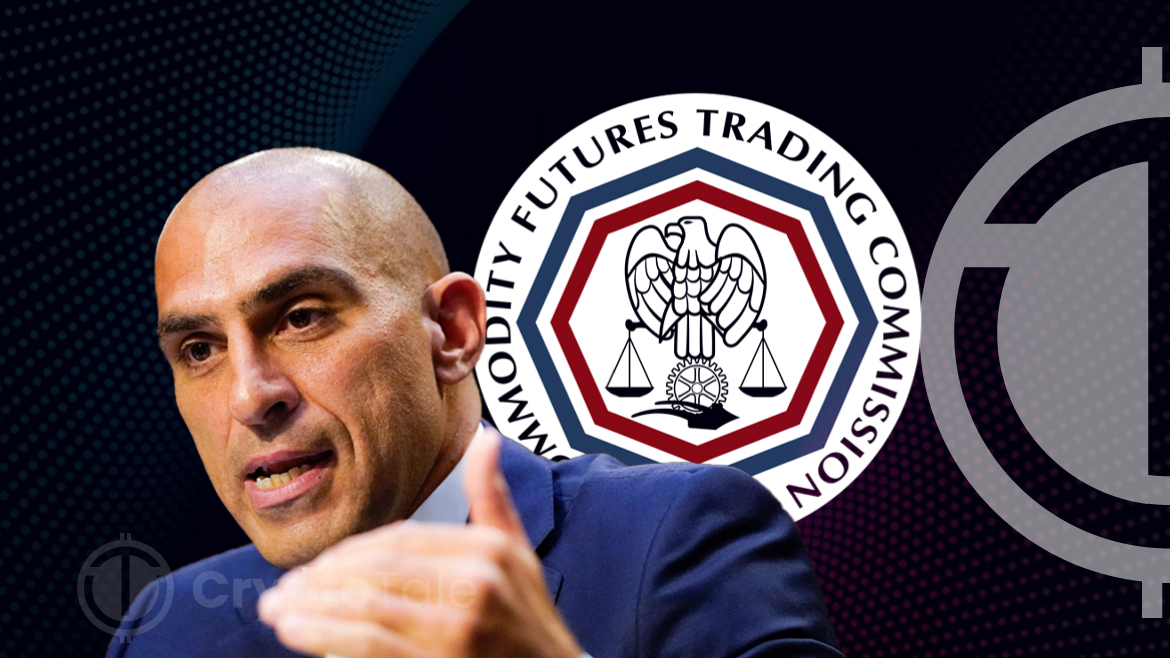- CFTC Chair Behnam clarifies many crypto tokens as commodities, providing regulatory clarity in the U.S.
- Ongoing regulatory uncertainty prompts urgent legislative calls, with Congress navigating complex crypto landscape.
- “Turf war” between SEC and CFTC impedes clear guidelines; urgency emphasized for congressional intervention.
In a recent interview on CNBC’s “Squawk Box,” Commodities Futures Trading Commission (CFTC) Chair Rostin Behnam shed light on the regulatory challenges facing the cryptocurrency industry in the United States. The chairman’s assertion that “under existing law, many of the tokens constitute commodities” adds a layer of regulatory clarity to the status of crypto assets in the country.
“It is figuring out how existing, decades-old law, fits into this new technology that seems to be changing and ultimately needs a new way of thinking around policy and legislating,” says @CFTCbehnam on #crypto. “Under existing law, many of the tokens constitute commodities.” pic.twitter.com/F3JPjWq3wG
— Squawk Box (@SquawkCNBC) December 12, 2023
Amidst the flourishing crypto industry, the lack of regulatory clarity has prompted urgent calls for legislative action, according to Behnam. He emphasized that members of Congress are actively working to navigate the complex regulatory landscape that currently exists.
The United States, a significant player in the global crypto scene alongside Australia and Brazil, grapples with regulatory uncertainties and persistent enforcement actions against crypto businesses. This uncertainty has led to a hesitancy among enterprises to continue operating in the region.
One of the primary obstacles in establishing clear regulatory guidelines for digital assets is the ongoing “turf war” between regulatory bodies in the country, particularly the Securities and Exchange Commission (SEC) and the CFTC. The struggle to determine which agency should regulate the crypto industry has become a major hindrance.
Behnam’s perspective on crypto regulation diverges from that of SEC Chair Gary Gensler, who contends that crypto intermediaries are transacting in securities and should fall under the SEC’s purview. Despite this difference, Behnam stressed having a positive working relationship with the SEC, emphasizing their shared interest in protecting U.S. markets, the financial ecosystem, and consumers.
As the conversation unfolded, the complexities of the regulatory landscape became evident. It was revealed that members of Congress are grappling with the challenges of policing digital assets. Despite acknowledging the longevity of the debate, Chairman Behnam conveyed a sense of urgency, emphasizing the necessity for Congress to bridge the regulatory gap.
The regulatory terrain involves both market and banking regulators, creating a gap that demands congressional intervention. The debate extends beyond the mere classification of crypto assets, delving into issues of market structure, anti-money laundering (AML), and Know Your Customer (KYC) regulations.
Recently, CFTC declared enforcement actions against three decentralised finance (DeFi) firms and hinted that there might be more to follow. The CFTC has charged Deridex Inc., Opyn Inc., and ZeroEx (0x) Inc. with providing illegal derivatives trading.






